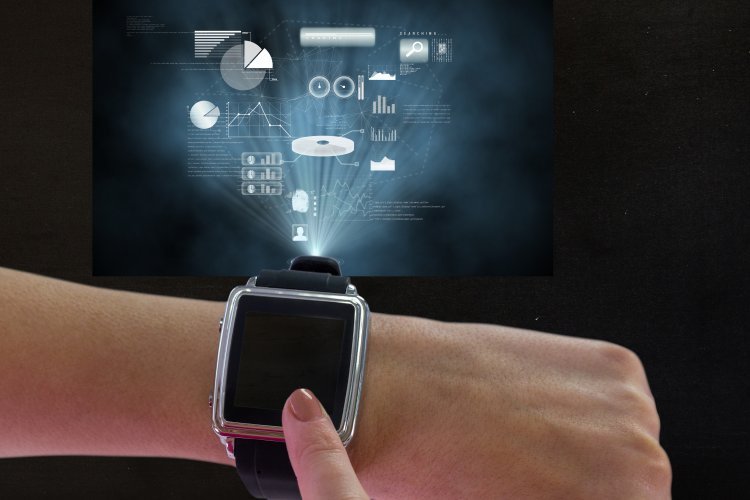Wearable Technology in Healthcare: A Key to Prolonging Life?
Wearable technology has revolutionized many aspects of our lives, and its impact on healthcare is nothing short of transformative. From fitness trackers to smartwatches capable of monitoring vital signs, wearable devices have become invaluable tools in managing health and wellness.

In this blog, we'll explore the evolution of wearable technology in healthcare, its importance, significant impacts, interoperability challenges, benefits, future trends, and booming health and fitness applications.
What Was the First Wearable Technology in Healthcare?
The concept of wearable technology in healthcare dates to the 1970s, with the invention of the first wearable cardiac pacemaker. This device, developed by Wilson Greatbatch, provided a revolutionary way to regulate heart rhythms and save lives. Since then, wearable technology has evolved exponentially, with advancements in miniaturization, sensor technology, and data analytics driving innovation in the healthcare industry.
Why Wearable Technology in Healthcare is Important?
Wearable technology in healthcare plays a crucial role in empowering individuals to take control of their health and well-being. These devices offer continuous monitoring of vital signs, activity levels, and other health metrics, providing valuable insights into overall health status. By enabling early detection of health issues, wearable devices can facilitate timely interventions and prevent serious complications. Additionally, wearable technology promotes active lifestyles and encourages users to adopt healthier habits, leading to improved health outcomes and quality of life.
Significant Impact of Wearable Technology in Healthcare
The impact of wearable technology in healthcare is profound, with applications ranging from chronic disease management to preventive care. These devices allow for remote patient monitoring, reducing the need for frequent hospital visits and enabling healthcare providers to deliver personalized care plans. Wearable technology also facilitates real-time data collection and analysis, enabling healthcare professionals to make informed decisions and optimize treatment strategies. Furthermore, wearable devices can revolutionize clinical trials and medical research by providing continuous, objective data on patients' health status and treatment responses.
Examples of Healthcare Interoperability Challenges That Can Be Solved with Wearable Technology
Despite its potential benefits, the widespread adoption of wearable technology in healthcare faces interoperability challenges. Integration with existing electronic health record (EHR) systems, data standardization, and privacy concerns are among the key issues that need to be addressed. However, wearable technology can overcome these challenges by enabling seamless data sharing and interoperability between different healthcare systems and devices. By leveraging open standards and interoperable platforms, wearable technology can facilitate the exchange of health information and promote collaboration among healthcare providers.
Benefits of Wearable Technology in Healthcare
The benefits of wearable technology in healthcare are numerous and far-reaching. These devices enable continuous monitoring of vital signs, allowing for early detection of health issues and timely interventions. Wearable technology also promotes patient engagement and empowerment by providing real-time feedback and personalized health insights. Additionally, these devices facilitate remote patient monitoring, reducing the burden on healthcare facilities and enabling more efficient use of resources. Furthermore, wearable technology can improve clinical outcomes, enhance patient satisfaction, and reduce healthcare costs in the long run.
The Future of Wearable Technology in Healthcare
The future of wearable technology in healthcare holds tremendous promise, with advancements in sensor technology, artificial intelligence, and data analytics driving innovation in the field. Wearable devices are becoming increasingly sophisticated, capable of monitoring a wide range of health metrics and providing personalized health recommendations. In the coming years, we can expect to see wearable technology integrated into various aspects of healthcare delivery, from remote patient monitoring to telemedicine consultations. Furthermore, wearable devices will continue to play a vital role in preventive care, chronic disease management, and health promotion efforts.
What Are the Key Wearable Technology Trends in Healthcare?
Several key trends are shaping the future of wearable technology in healthcare. These include the integration of artificial intelligence and machine learning algorithms to analyze health data and provide personalized insights. Additionally, wearable devices are becoming more interconnected, enabling seamless data sharing and interoperability between different devices and platforms. Furthermore, wearable technology is expanding beyond traditional fitness tracking to encompass a wider range of health and wellness applications, including sleep monitoring, stress management, and nutrition tracking.
Wearable Technology Health and Fitness: Apps and Devices That Are Already Booming
The market for wearable technology health and fitness apps and devices is already booming, with a wide range of products available to consumers. Popular examples include fitness trackers such as Fitbit and Garmin, smartwatches like the Apple Watch and Samsung Galaxy Watch, and health monitoring devices such as the Oura Ring and Withings Body+ scale. These devices offer features such as step counting, heart rate monitoring, sleep tracking, and calorie tracking, enabling users to monitor their health and fitness goals more effectively. Additionally, there is a growing ecosystem of health and fitness apps that integrate with wearable devices, providing users with personalized workouts, nutrition plans, and wellness tips.
Connecting with us for Create a Fitness App – A Comprehensive Guide to Fitness App Development
In conclusion, wearable technology can revolutionize healthcare by enabling continuous monitoring, personalized interventions, and enhanced patient engagement. As technology continues to advance, we can expect to see wearable devices play an increasingly integral role in healthcare delivery, promoting better health outcomes and prolonging lives.
Explore the future of healthcare wearables and AI for remote patient monitoring - read more!
What's Your Reaction?










![Wireless Connectivity Software Market Size, Share | Statistics [2032]](https://handyclassified.com/uploads/images/202404/image_100x75_661f3be896033.jpg)


